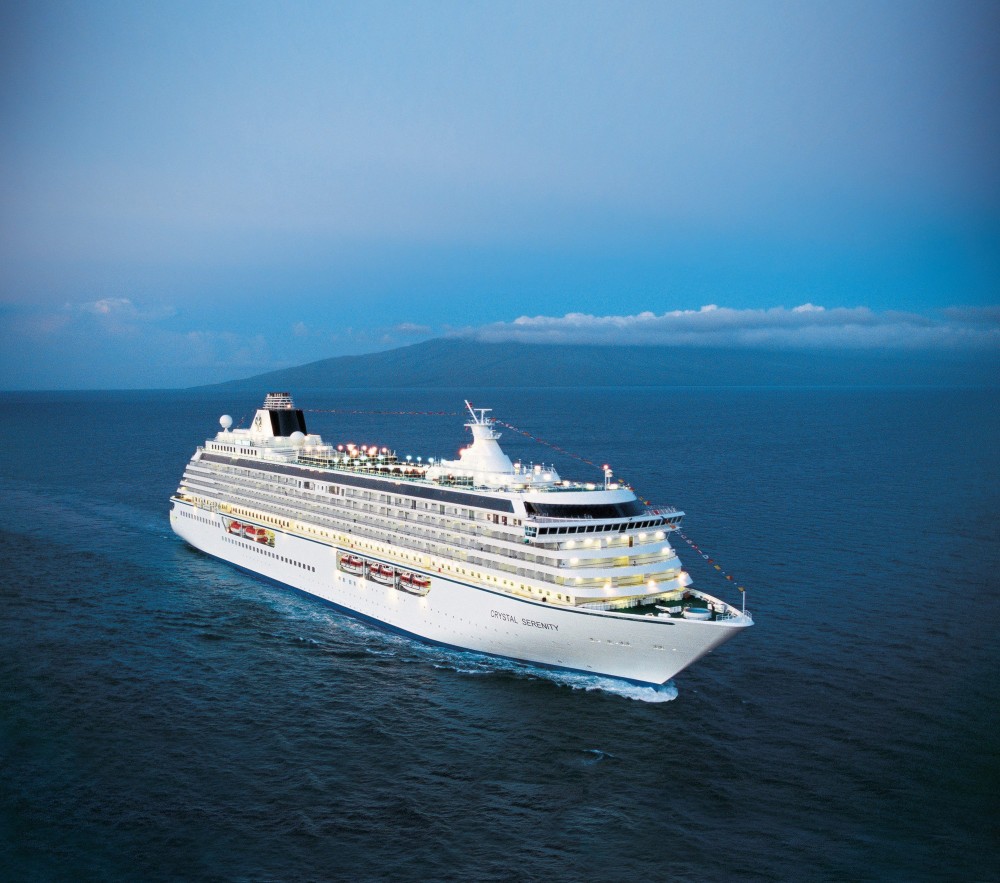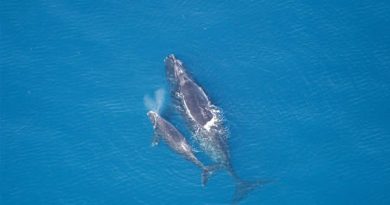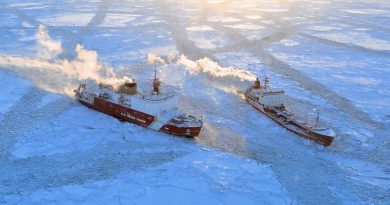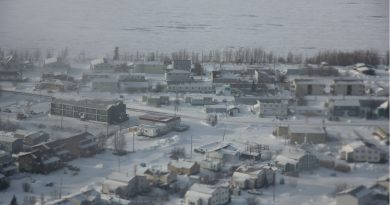Arctic cruises are risky business: expert

Climate change means melting ice will make it possible for cruise ships to go through the Northwest Passage in a few months, but Michael Byers says such voyages carry risks and are bad for the environment.
Byers is Canada Research Chair in Global Politics and International Law at the University of British Columbia and author of “International law and the Arctic.”
Search and rescue two days away
An accident is the most obvious hazard, says Byers, noting that the area is so remote that it would take a search-and-rescue helicopter up to two days to get there. And, for example, it could do little for the 1,070 passengers and 600 crew expected to sail this summer on the Crystal Serenity, the first cruise ship to sail the passage.
“There are many other risks,” he says. “These are shallow, poorly-charted waters. There are remnants of icebergs, small pieces of glacial ice that, if struck by a ship, can punch a hole in the hull.”
Icing can capsize a ship
Icing occurs when temperatures are below freezing. Spray can rise up from the sea and freeze on a ship, causing it to become unstable and even capsize.
While cruise ships have less fuel than do oil tankers, any spill would be difficult to clean, given that there is little equipment, few people and few government ships in the Arctic. A spill in August or September would leave little time before total darkness falls upon the Arctic for many months. All this, says Byers, makes a clean-up “almost inconceivable.”
Cruises contribute to climate change
It may be good for people to see the effects of climate change up close, he adds, but the cruises themselves contribute to climate change. Fossil fuels are burned by the ship’s propulsion and heating system, by the planes that fly people to and from the port, and by the transportation needed to import all the food.
Perhaps a different vacation, suggests author
Byers says he would not tell people to not go on an Arctic cruise. He has sailed there on a Canadian Coast Guard ice breaker and on a smaller, eco-cruise ship. But he does suggest people consider several factors and then maybe decide on a trip closer to home.
“Consider the fact that you would be contributing to climate change by going (on an Arctic cruise), and think about whether there’s an element of tension in the desire to see climate change while making it worse.”
Related stories from around the North:
Canada: Ice, shipping and the Northwest Passage, Radio Canada International
China: Chinese company mulls more Arctic shipping, Barents Observer
Iceland: Calls for action at Arctic shipping conference, Alaska Dispatch News
Russia: Arctic cruise industry expands, Cryopolitics Blog
Sweden: Swedish icebreakers gear up for Arctic role, Radio Sweden
United States: Arctic no shipping rival to Suez: expert, Alaska Public Radio Network



